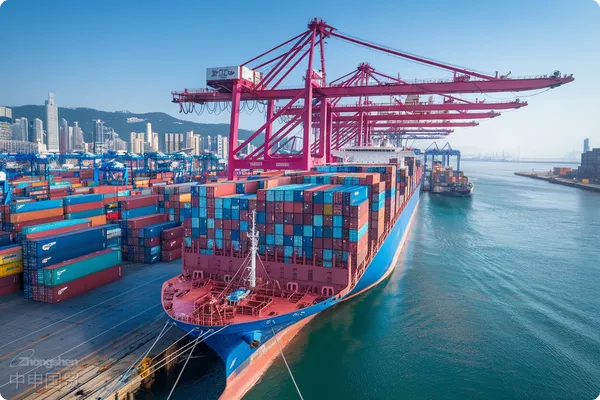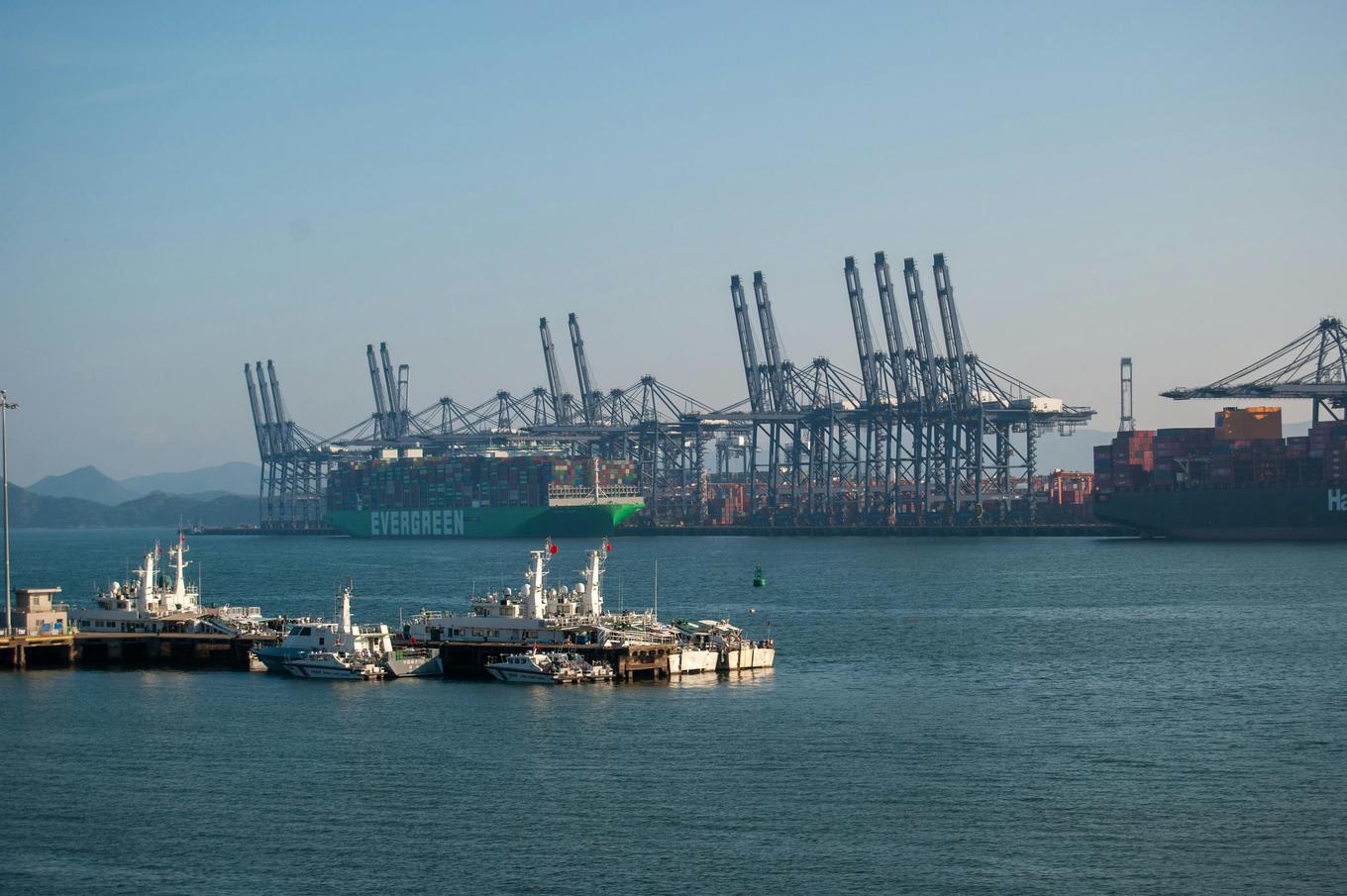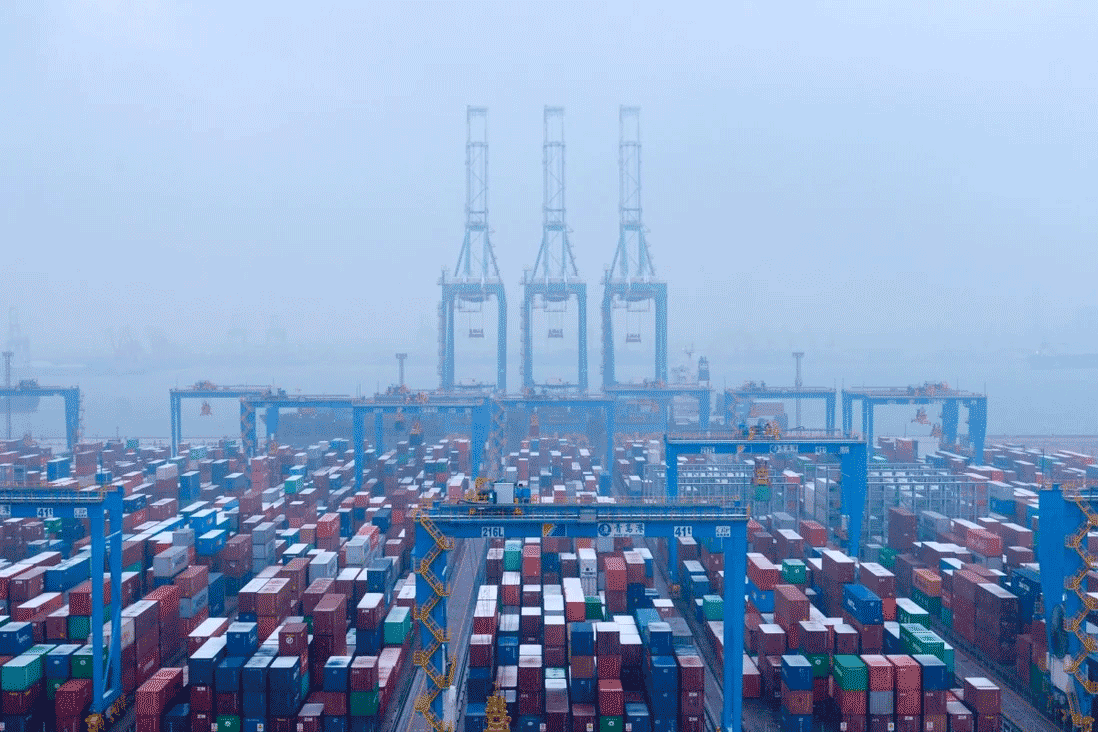- Shanghai Zhongshen International Trade Co., Ltd. - Two decades of trade agency expertise.
- Service Hotline: 139 1787 2118

Introduction
In todays globalized business environment, importing fiber optic transceivers from South Korea presents new development opportunities for many enterprises. However, international trade involves complex processes and numerous procedures, making smooth imports a key concern for importers.ZhongShen International TradeWith profound expertise in theExport RepresentationExtensive experience in service fields, especially professional capabilities in document processing and logistics services, can provide strong support for importing fiber optic transceivers.
ZhongShen International Trades professional capabilities in document processing
Document processing is a critical link in international trade. Importing fiber optic transceivers from South Korea requires various essential documents. Commercial invoices must accurately fill in product descriptions, quantities, values, etc., serving as important bases for customs valuation and taxation. Packing lists must detail packaging specifications for each item, including dimensions and weights. Bills of lading are particularly crucial as proof of cargo ownership.
ZhongShen International Trade has an experienced document team with thorough knowledge of international trade document requirements. The team carefully reviews each document to ensure consistency and avoid delays or penalties due to discrepancies. For example, a client importing electronic equipment from South Korea faced customs inspection risks due to vague product specifications in the invoice. ZhongShens document team promptly communicated with the supplier to revise and complete the invoice, ensuring smooth customs clearance and timely delivery.
When preparing documents, South Korean export regulations and Chinese import requirements must be followed. South Korea has specific declaration formats and document requirements for electronic product exports, while Chinese customs have corresponding regulations for fiber optic transceiver imports. ZhongShens team can precisely grasp these regulatory differences to ensure document compliance.
Professional logistics arrangement control
Logistics directly affects cargo delivery time and costs. When importing fiber optic transceivers from South Korea, common transportation methods includeAir TransportationandMaritime TransportationAir freight is fast, suitable for urgent goods, but costs are higher; sea freight has lower costs, suitable for bulk cargo transportation, but takes longer.
Zhongshen International Trade has established long-term partnerships with multiple internationally renowned shipping companies and airlines, enabling flexible transportation method selection based on client needs. For time-sensitive requirements, air freight can be arranged to ensure rapid delivery. For sea freight, optimized booking processes help secure more favorable freight rates and cabin space.
Cargo tracking is crucial during transportation. Zhongshen International Trade utilizes advanced logistics tracking systems to monitor cargo status in real-time and provide timely updates to clients. If issues arise during transit, such as flight delays or vessel detention due to bad weather, emergency plans are activated immediately to coordinate with relevant parties and minimize impact on client operations.
Warehousing is another critical logistics component. If cargo cannot be cleared promptly upon arrival at the destination port, high demurrage fees may incur. Zhongshen International Trade has partnered warehouses near major ports to provide short-term storage services, ensuring safe cargo storage and optimized clearance scheduling to reduce client costs.
Advantages in the Russian market – VTBFX Settlement Agencyclose cooperation. Using VTB channels simplifies cumbersome procedures and accelerates settlements.
While the current topic focuses on importing fiber optic transceivers from South Korea, the Russian market holds significant importance in international trade, and Zhongshen International Trade possesses unique advantages in Russian business operations.
In international trade, foreign exchange settlement is a key process. For businesses trading with Russia, VTB Bank (Russiaforeign tradeBank) offers multiple conveniences. As an influential financial institution in Russias banking system, VTB simplifies the foreign exchange settlement process.
The specific settlement process is as follows: After goods are exported to Russia, the importer opens an account with VTB Bank. The exporter submits required documents such as bills of lading and commercial invoices. Upon verification, VTB Bank transfers payment to the exporter at the agreed exchange rate. Zhongshen International Trade is familiar with VTBs settlement procedures and can assist companies in completing transactions swiftly, reducing exchange rate risks and capital occupation costs.
For example, when a company exporting products to Russia faced slow fund recovery due to unfamiliarity with Russian bank settlement procedures, Zhongshen International Trade intervened by guiding document preparation, enabling smooth settlement through VTB Bank and accelerating capital turnover.
Southeast Asian Marketimport and exportProcesses and Solutions
Southeast Asian markets maintain close trade relations with China, making understanding their import-export processes crucial for fiber optic transceiver imports.
The import process begins with signing trade contracts. Contracts with South Korean suppliers must specify product specifications, quantity, price, delivery time, payment terms, etc. When usingL/Cpayment methods, the importer must apply for a letter of credit (L/C) through their bank. After reviewing the importers qualifications, the bank issues the L/C to the South Korean supplier, who then ships the goods and submits documents as required.
Upon arrival at Southeast Asian ports, customs declaration and inspection are required. Declaration requires documents like commercial invoices, packing lists, bills of lading, and customs declarations. For inspection, fiber optic transceivers as electronic products must comply with relevant quality and safety standards in Southeast Asian countries. Zhongshen International Trade is well-versed in regional regulations and can assist companies in preparing compliant documents for smooth customs clearance.
During customs clearance, some Southeast Asian countries may requireIt is recommended to verify through the following methods:to determine eligibility for preferential tariffs. Zhongshen International Trade can guide companies in obtaining certificates of origin to reduce import costs.
For transportation from South Korea to Southeast Asia, sea freight is most convenient. Zhongshen International Trade can arrange cargo loading at South Korean ports for shipment to destination ports, and assist with subsequent pickup and inland transportation arrangements.
For the Southeast Asian market, Zhongshen International Trade also offers supply chain optimization solutions. By integrating logistics resources and optimizing warehouse distribution, companies can reduce logistics costs and improve supply chain efficiency.
Challenges and opportunities in the international trade situation
Current international trade conditions are complex and volatile. Rising trade protectionism has led countries to implement restrictive measures like increased tariffs and trade barriers, creating challenges for fiber optic transceiver imports from South Korea by raising costs and uncertainty.
Meanwhile, ongoing global pandemic impacts continue to disrupt logistics supply chains, with frequent sea freight price fluctuations and port congestion causing extended transportation times and higher costs.
However, opportunities exist. Rapid digital trade development and improved online platforms facilitate communication between importers and South Korean suppliers, reducing trade costs. Countries are also promoting trade facilitation reforms to streamline customs processes and improve efficiency.
To address challenges, companies should strengthen market research, monitor trade policy changes, and adjust procurement strategies accordingly. For example, when a country raises import tariffs on fiber optic transceivers, alternative suppliers from other regions can be considered, or cost-sharing negotiations initiated with South Korean suppliers.
For logistics, advance transportation planning with reliable partners and maintaining appropriate inventory can mitigate delay risks.
Product Certification Service Related Matters
Fiber optic transceiver imports involve multiple product certifications. In China, CCC certification is required to ensure product quality and safety. Similar certification requirements exist in some Southeast Asian countries.
While Zhongshen International Trade does not directly handle certification, we provide professional guidance by informing clients about required certification types, processes, and relevant agencies. We assist in preparing documentation and coordinating with certification bodies to expedite the process.
For instance, when a client unfamiliar with CCC certification procedures imported fiber optic transceivers, Zhongshen International Trade detailed the steps, guided preparation of product test reports and business licenses, and successfully assisted in certification completion for smooth market entry.
In summary, importing fiber optic transceivers from South Korea through Zhongshen International Trades professional documentation processing, logistics arrangements, market expertise, trade strategy adaptation, and certification assistance enables importers to complete transactions successfully and achieve business objectives.
Related Recommendations
? 2025. All Rights Reserved. Shanghai ICP No. 2023007705-2  PSB Record: Shanghai No.31011502009912
PSB Record: Shanghai No.31011502009912










